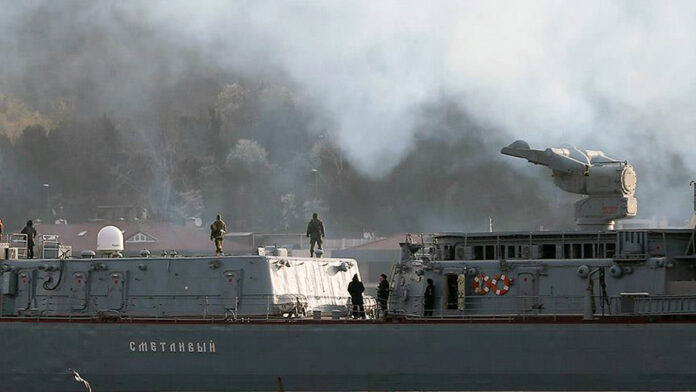Author: Yücel Acer
Affiliation: Faculty of Law at Yıldırım Beyazıt University
Organization/Publisher: SETA
Date/Place: March 7, 2022/Istanbul, Turkey
Type of Literature: Analysis
Word Count: 2052
Link: https://bit.ly/3Jhjd9Y
Keywords: Ukraine, Russia, Turkey, Montreux Convention
Brief:
The article outlines the passage of warships to and from the Black Sea and Turkey’s sovereignty over the Turkish straits in the context of the Russian-Ukrainian war under the auspices of the Montreux Convention, which “remains the applicable convention on the Turkish Straits.” More particularly, the article is an assessment of the legality of the Turkish position as regards the war at the time of writing. The author, a law professor and expert on international law of the sea, concludes that so far Turkey’s approach is “legally appropriate.” First, he outlines the texts from the Montreux Convention relevant to the invasion. Then, he tries to apply said articles over the situation, before assessing Turkey’s stance. The Montreux Convention was signed in 1936. It was intended to address the passage of ships through the Turkish Straits, namely the Dardanelles, Marmara Sea, and Strait of Istanbul (the Bosphorus), as well as the security concerns of Turkey and other Black Sea countries. Relevant to the situation, Article 19 states that Turkey should not allow warships of belligerent states to pass, with three exceptions: 1. warships returning to their bases in the Black Sea; 2. In line with the rights and obligations listed in the UN Charter; and 3. “In cases of assistance rendered to a state targeted by the aggression that has a treaty of mutual assistance binding Turkey.” The article stresses that in order for the Montreux Convention to come into force, a situation must be officially labeled as a war. Turkey has officially described the situation as a “state of war”. As such, Turkey has prohibited the passage of both Ukrainian and Russian warships, except for warships registered in Black Sea ports, as per the above outlined exceptions. Russia has requested the passage of four ships, but only one was allowed—being the only one registered at a Black Sea port. On the other hand, since the General Assembly has yet to issue any decisions on the war, Turkey made no official statements regarding the convention and its UN obligations. Nonetheless, the article notes that “if the U.N. General Assembly, whose decisions are of an advisory nature, decides to urge military aid to Ukraine and military measures against Russia, Turkey is not legally obliged to fulfill the requirements of this decision.” In conclusion, at the time of the article, Turkey’s approach is “legally appropriate.”
By: Hamza Emir, CIGA Research Assistant




